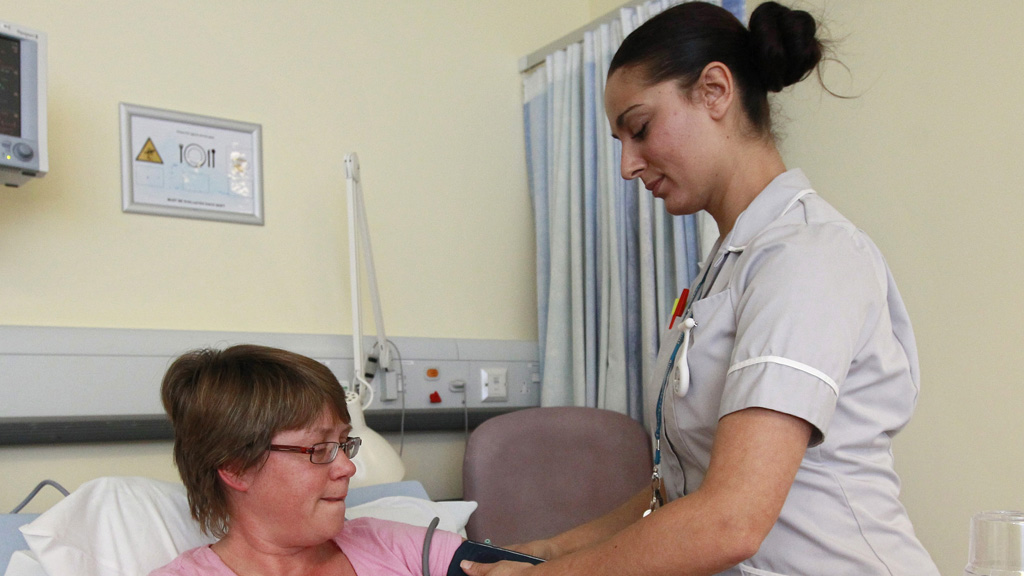Nurses ‘must deliver compassionate care’
Nurses who fail to demonstrate compassionate care are betraying the values of their profession, according to the chief nursing officer for England.

Jane Cummings said that while there was good work in the “vast majority” of cases, there had been cases of poor care, which betrayed the values of caring professions.
The findings of an eight-week consultation have led to a new strategy to improve care within the health service, which will include nurses, midwives, and care staff being judged on their caring values as well as technical skill.
But Peter Carter, chief executive and general secretary of the Royal College of Nursing, warned that unmanageable workloads would automatically led to a drop in patient care.
Making a difference
In a speech, detailing the findings, Ms Cummings said: “Being a nurse, a midwife or a care worker is an extraordinary role.
“We are proud to be part of a remarkable health and care service that does make a difference to people’s lives each and every day.
“But the context for health care and support is changing. Most significantly, with people living longer, we have a greater number of older patients and people to support, many with multiple and complex needs.”
'We need to protect frontline jobs'
There are very real questions that need to be asked about the practices, about a small number of nurses and whether they are in the right profession. But we need to keep that in proportion, writes Roger Catton, head of policy, Royal College of Nursing.
They should not be mixed up with other nurses who are under great strain. Hospitals are full to bursting and patients increasingly have multiple and complex needs, and there many nurses who have the right caring and compassionate mindset but are overstretched.
There are several things which can be done. We need to be rigorous in recruiting and do so alongside academic bodies. There is something about the mindset around reporting incidents. We must not be so defensive but say this is really important feedback.
The top table has taken its eye off the ball and focused too much on money and targets, but most importantly we need to protect jobs on the front line.
There is nothing wrong with nursing that can't be cured with what is right with nursing.
Poor care
Her speech came as the new three-year strategy, Compassion in Practice, was launched following an eight-week consultation involving more than 9,000 nurses, midwives, care staff and patients.
Under the drive, recruitment, appraisal and training of staff will be based on values as well as technical skill.
We are proud to be part of a remarkable health and care service that makes a difference to people’s lives every day. Jane Cummings
She added: “Yes, there have been stories of poor care, and if that is you as an individual or it is a member of your family, somebody that you love and care for, you will never forget that.
“We really want to try and make sure that does not happen again, and we do our best to make sure that the care that people get, wherever they are cared for, in hospital, or at home, in nursing or residential homes, is the best that it can possibly be.”
Crisis in standards
The launch comes after a series of reports outlining concerns over poor care in the NHS including failures to provide clean and comfortable surroundings for patients and help with eating and drinking.
Health Secretary Jeremy Hunt said last week that there was a “crisis in standards of care” in some hospitals and care homes.
Commenting on the strategy, Mr Hunt said: “Ensuring that patients get the best possible care is a priority for this Government. Nurses play an important role in this which is why this announcement by nurse leaders is so important.
Diane Abbott, Labour’s shadow public health minister, said: “We need to see a culture of compassion. But I fear that part of the growing health crisis is the fact that over 7,000 hospital nursing jobs have been axed since David Cameron entered Downing Street, with almost one thousand in the last month alone. This will be increasingly devastating to patient care.”